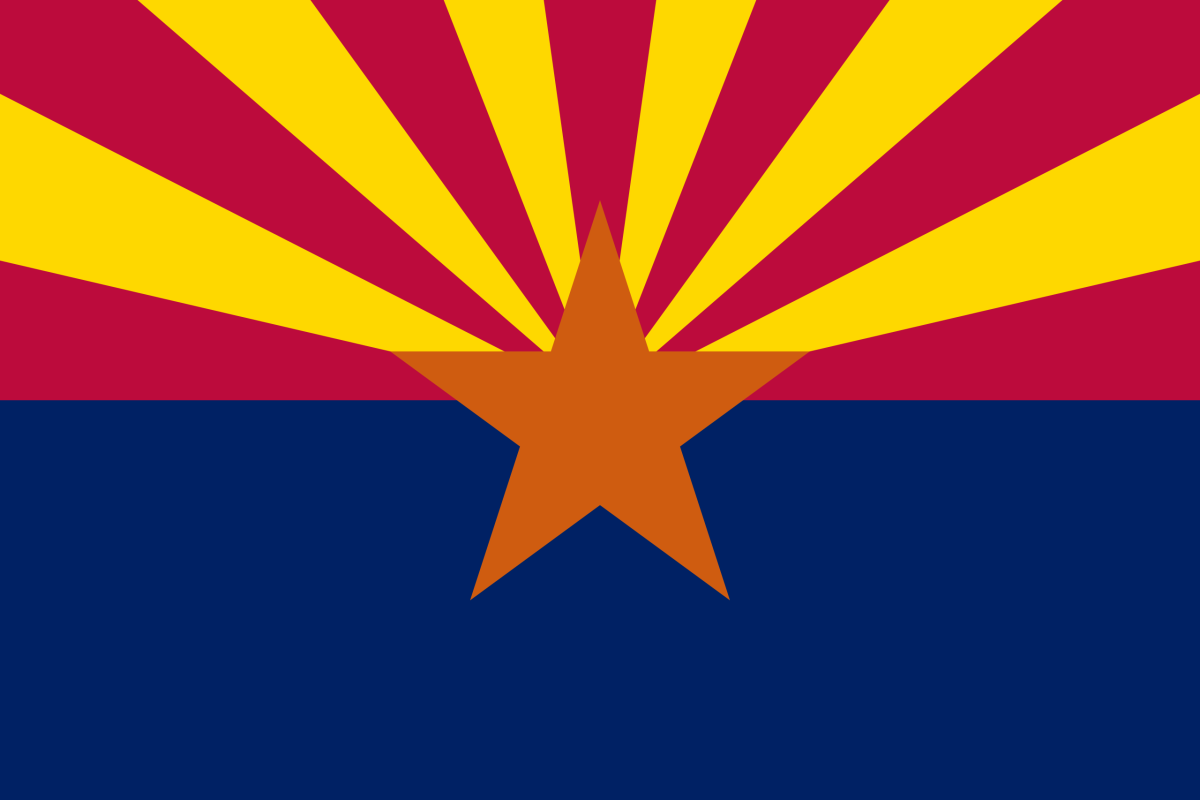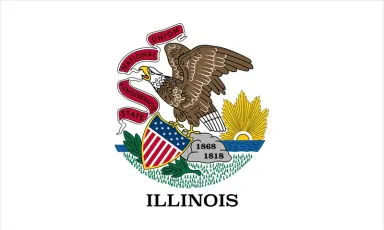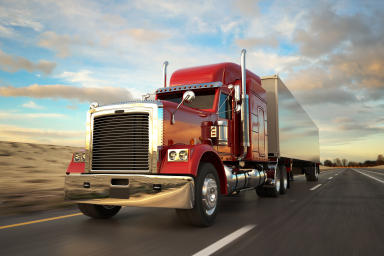Arizona Trucking Laws

Trucking accidents are, unfortunately, all too common in Arizona. According to the Arizona Department of Transportation, there were over 13,400 crashes involving large trucks in the state in 2021, resulting in 20 deaths and 1,306 injuries. Accidents like these can have devastating consequences for those involved, and navigating the legal system can be overwhelming for victims and their families.
This article aims to provide useful information for people involved in a trucking accident in Arizona. Whether you are an injured victim seeking damages or a potential plaintiff filing a lawsuit, understanding the state's trucking accident laws is crucial to protecting your rights and securing the compensation you deserve.
Arizona Trucking Speed Limitations
According to Section 28-709 of Arizona law, the maximum speed limit for large vehicles weighing over 26,000 pounds — such as commercial trucks — is 65 mph. There are also instances where higher speed limits are allowed, as posted on road signs.
However, despite the presence of speed limits, many truck drivers still violate the law due to tight deadlines or pressure from their employers to deliver goods quickly. Reasons like these increase the risk of devastating incidents on local roadways. Hence, it would be prudent to file a report with the Arizona Department of Public Safety or the local police department if you witness a truck driver violating the speed limit or having caused a speeding-related accident.
Additionally, if you are a trucking accident victim, it is important to be aware of this law, as it can be used to establish negligence on the part of the driver or trucking company. If a driver is found to have violated the speed limit at the time of an accident, they may be held liable and made to pay for any resulting damages.
Arizona Trucking Weight Limitations
When trucks are overloaded with cargo, their trailers may sag, their tires may bulge, and it becomes difficult for drivers to maintain speed, slow down, maneuver, stop, or stay in their lane. Overloading can lead to rollovers, jackknifing, and other accidents that result in serious injuries and death. In line with this, Arizona enforces the following gross weight limits for commercial trucks under Section 28-1100 of the state’s Revised Statutes:
The weight of a truck’s cargo must not exceed 20,000 pounds, including enforcement tolerances, on one axle.
The weight of a truck’s cargo must not exceed 34,000 pounds, including enforcement tolerances, on a tandem axle.
The cargo weight must not exceed 80,000 pounds on a truck with five axles or more.
These restrictions reflect the maximum weights mandated by the US Department of Transportation’s Federal Highway Administration. Trucks carrying loads over the weight limit are prohibited from operating on the state’s highways unless they have a special permit. The Arizona Department of Transportation issues these to applicants whose trucks meet the following criteria:
The overall length of the vehicle combination’s cargo-carrying unit is no longer than 95 feet.
The maximum weight borne by each axle of the combination vehicle follows the limitations set in Section 28-1100.
The overall gross weight of the vehicle combination is no more than 129,000 pounds.
The vehicle combination is only traveling on a state route or highway within 20 miles of Arizona’s borders if the adjacent state allows such overloaded vehicles.
Commercial trucking companies and drivers must comply with federal and state regulations regarding weight limits to ensure road safety. If found to violate these, offenders may face fines, license suspension, and criminal charges. They may also have to pay damages such as medical bills and lost wages if their violation results in an accident involving injuries or death.
Arizona Trucking Length Limitations
Arizona legislation enforces maximum lengths for trucks in the state. According to Section 28-1095, it is illegal for semi-truck drivers to operate trailers longer than 28 feet and 6 inches. The statute also states that no truck combination — which may include a truck tractor, trailer, and semitrailer — shall exceed a total length of 65 feet.
Despite this, many drivers operate trucks that do not abide by the rules. A driver may be cited for violating the law, especially if they have been involved in an accident while operating a truck that is longer than legally allowed or driving a truck attached to more than two trailers. This may result in fines and penalties, as well as potential liability for accidents caused by non-compliance.
Victims of trucking accidents and plaintiffs suing a truck driver or trucking company after an accident should be aware of these limitations, as they may be a factor in determining liability.
Exceptions
Certain vehicles are not subject to the statute, such as firefighting apparatus and recreational vehicles. Below is a partial list of exemptions:
A semitrailer when used in combination with a truck or a truck tractor.
A truck equipped with a conveyor bed used to transport fiber and forage and is no longer than 48 feet.
A recreational vehicle, power unit, farm vehicle, horse trailer, or other wheeled equipment when used in combination with two units, given that the total length is not over 65 feet.
A recreational vehicle that on its own does not exceed a length of 45 feet.
Arizona legislation defines farm vehicles as those used for commercial farming, stock raising, or the transportation of agricultural products, machinery, or supplies. In turn, the term “recreational vehicle” refers to motor vehicles typically designed and used for personal leisure or enjoyment, such as pickup trucks with campers or fifth-wheel trailers.
Arizona Splash Guard Law
Arizona Revised Statute Section 28-958.01 requires installing and maintaining a splash guard on a truck’s rear fender. The law states that the splash guard must be able to prevent water, mud, and other debris from being thrown onto other vehicles on the road. The statute applies to all trucks, trailers, and semi-trailers that operate on Arizona highways, except for certain vehicles, such as those with a gross weight of up to 10,000 pounds.
The regulation aims to improve road safety since flying debris can obstruct vision and cause accidents, especially in bad weather conditions. Violating this law can result in a fine of up to $500 for each offense.
If Arizona's truck driver or trucking company violates this law and causes an accident, victims can sue for the resulting damages. Reputable and experienced attorneys can help plaintiffs gather evidence and build a strong case against the at-fault party.
Arizona Commercial Trucking Insurance Requirements
Arizona imposes financial responsibility in the form of minimum insurance requirements for motor vehicles operated on the state’s roadways. However, different amounts are required for commercial trucks.
Commercial trucking insurance requirements in Arizona are set forth by both the federal government and the state. The Federal Motor Carrier Safety Administration (FMCSA) requires coverage for bodily injury, which means that any physical injuries that occur as a result of a commercial trucking accident must be covered by the insurance policy. Property damage insurance is also mandatory to pay for repairs to any property damaged in the incident. The minimum required coverage for each type of insurance can range from $300,000 to $5 million, depending on the weight and type of cargo that a commercial truck is transporting. The FMCSA’s minimum liability requirements include:
$750,000 for for-hire interstate general freight carriers.
$1,000,000 for for-hire and private carriers of oil and certain types of hazardous waste.
$5,000,000 for for-hire and private carriers of other hazardous substances.
These regulations were created to demonstrate motor carriers’ financial responsibility, thereby protecting victims in the event of an accident and ensuring they receive the compensation they are entitled to.
How Much Can Someone Sue for a Truck Accident in Arizona?
In Arizona, if a person sustains severe injuries, damage to property, or related financial loss as a consequence of a truck accident, he or she has the option to file a personal injury or property damage lawsuit against the parties responsible, which may include the truck driver, the trucking company, or any other entities that played a role in the accident. The repercussions of truck accidents can be catastrophic, making it essential for victims to seek legal recourse to recover damages.
Arizona courts can award both economic and non-economic damages in truck accident cases. The economic damages that a plaintiff can seek include property damage, lost income, medical expenses (including those estimated in the future as a result of injuries sustained in the accident), and other related costs they have paid out of pocket. Non-economic damages could range from pain and suffering, loss of consortium and enjoyment of life, and emotional distress to other non-monetary losses such as loss of reputation.
Additionally, in most cases, Arizona does not cap the amount of damages a plaintiff can receive. This means victims suing for compensation could obtain the entire value of their losses — both monetary and ones that do not have an exact dollar value. It is important to consult with an experienced attorney to determine the appropriate course of action and estimate the value of your claim.
Arizona Statute of Limitations for Truck Accidents
According to Arizona law, there is a two-year statute of limitations on personal injury claims. This means individuals who intend to sue for damages after being in a trucking accident in Arizona must do so within two years of the accident. The same time limit applies to property damage and wrongful death cases. However, there are some exceptions to this rule.
For example, if the victim is a minor, the statute of limitations only begins to run once they turn 18. Moreover, if the victim discovers his or her injuries after the deadline has passed, he or she may still be able to file a claim. Nevertheless, it is important to note that this exception does not apply if the victim had already discovered or should have reasonably discovered their injuries before the two-year period had passed.
The statute of limitations also varies if the negligent party is a government employee or entity; the timeframe for pursuing legal action is shortened to six months. Truck accident victims should seek legal advice as soon as possible to ensure they begin the claims process within the time allotted.
Arizona Is a Fault State for Insurance Claims
Arizona follows a fault system for trucking accident claims. This means that in the event of a trucking accident, the party responsible for causing it is liable for damages. The injured party has the right to file a claim against the at-fault party’s insurance company to recover compensation for damages, such as medical expenses, lost wages, and pain and suffering. It is crucial to contact an experienced Arizona truck accident lawyer to help navigate the legal process and ensure fair compensation.
Arizona Follows the Pure Comparative Fault System for Trucking Accident Lawsuits
Arizona follows a pure comparative fault allocation system for trucking accident lawsuits. This means a plaintiff can recover damages even if they were partially responsible for the accident. However, the amount of damages they can recover will be reduced by the percentage of their fault. For example, if a plaintiff is found to be 30% responsible for a truck accident and the damages awarded to them are $100,000, they are only entitled to receive $70,000.
To obtain financial recovery for their injuries from a truck accident in Arizona, a victim must show that someone else was at fault for the crash. The fault is assigned based on the presented evidence, which may include eyewitness testimonies, accident reconstruction reports, and physical evidence from the scene of the accident.
Plaintiffs need to gather enough evidence to validate their claims. Personal injury attorneys experienced with truck accident cases can help victims build a strong case for themselves and achieve the best possible outcome for their lawsuits.
Average Settlement for Arizona Trucking Accident Lawsuits
The settlement amount for trucking accidents can vary widely based on several factors, such as the severity of the injuries, the amount of property damage, and the level of negligence involved. Typically, settlements for trucking accidents can range from thousands to millions of dollars in compensation.
In a 2022 case, a wrongful death suit was levied against the driver of a semi-tractor trailer after he caused a traffic collision in Goodyear, AZ. The crash resulted in the death of another man after he sustained major injuries; his family was later awarded a $900,000 settlement.
Attorneys in Arizona typically take cases on a contingency basis, which means they only get paid if a plaintiff receives a settlement. An attorney's fee is usually a percentage (typically 25% to 40%) of the settlement amount.
Legal Resources for Arizona Trucking Accident Victims
State Bar of Arizona Public Service Center
The State Bar of Arizona Public Service Center is a helpful resource for those seeking legal assistance after a truck accident in Arizona. The center has a directory of attorneys who specialize in personal injury law, including truck accident cases. This can make it easier for truck accident victims to find qualified legal representation. Additionally, the center offers resources such as articles, FAQs, and videos to educate people on their legal rights and options.
Arizona Department of Transportation
The Arizona Department of Transportation website provides information on trucking regulations, safety requirements, and accident reporting procedures. Victims of truck accidents can access reports of previous accidents and safety statistics, as well as contact information for relevant state agencies.
Arizona Association for Justice
The Arizona Association for Justice is a nonprofit organization that aims to protect the rights of injured individuals. Its website provides legal resources for truck accident victims, including access to qualified lawyers and legal advice. The organization also advocates for fair compensation for victims of truck accidents.
Arizona Department of Insurance
The Arizona Department of Insurance is a state agency that regulates and supervises the insurance industry in Arizona. Its mission is to protect consumers by ensuring that insurance companies comply with state laws and regulations. For truck accident victims in Arizona, the department can be a helpful resource in navigating insurance claims and understanding their rights. It can provide assistance with insurance-related concerns, such as filing a complaint or resolving a dispute with an insurer.
National Highway Traffic Safety Administration
The National Highway Traffic Safety Administration (NHTSA) is a federal agency responsible for improving road safety for all road users. The NHTSA can be a valuable resource for truck safety regulations, crash test ratings, and vehicle recalls. By staying informed about truck safety standards, victims of trucking accidents can better advocate for their rights and hold negligent trucking companies and drivers accountable.
Expertise.com StaffAuthor
Step into the world of Expertise.com, your go-to hub for credible insights. We don't take accuracy lightly around here. Our squad of expert reviewers, each a maestro in their field, has given the green light to every single article you'll find. From rigorous fact-checking to meticulous evaluations of service providers, we've got it all covered. So feel free to dive in and explore. The information you'll uncover has been stamped with the seal of approval by our top-notch experts.




